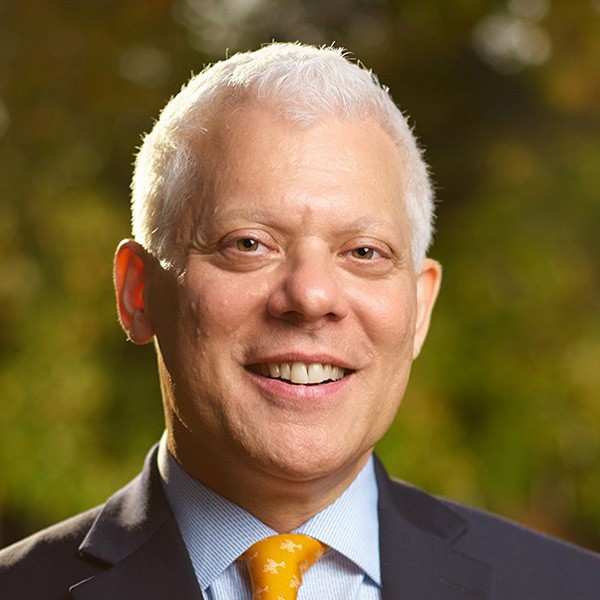 Allen M. Omoto, Vice President for Academic Affairs and Dean of Faculty
Allen M. Omoto, Vice President for Academic Affairs and Dean of FacultyPitzer Now. More than ever. Look around. A pandemic is raging. We are in the midst of societal awakening, political action, and cultural change. This fall, Pitzer classes and co-curricular activities will cut to the heart of these issues and offer you opportunities for engagement like you’ve never had before. We might not all be together in person on campus, but our academic life will be vibrant, complete with restyled education and new ways to be involved.
This document is a reminder about what makes Pitzer students and educational experiences distinctive in higher education: the philosophical underpinnings of our institution that stress social justice and social change, the meaning of a liberal arts education, our core values, and importantly, our commitment to one another and the broader communities that surround us. This is Pitzer, regardless of how classes are taught, and what a Pitzer education entails. It is why our faculty and staff are here, and it is why you chose to pursue your education here.
“Our commitment as a college is, first and foremost, to student health, well-being and development. Our decision to move to online education this fall was rooted in our concern for student, faculty and staff health.”
Our commitment as a college is, first and foremost, to student health, well-being, and development. Our decision to move to online education this fall was rooted in our concern for student, faculty, and staff health. In making this move, we are redoubling our efforts to ensure that Pitzer students receive personalized and high-quality educational experiences that speak to the pressing problems we are facing, while also providing tools for future success. The faculty and staff continue to retool courses and support services for remote delivery and access. Importantly, this work is student-centered and is being informed from what we learned from student responses to a recent survey we conducted on remote experiences in the spring. We learned from you, for example, that courses will work best when they balance accessibility and flexible attendance with opportunities for real-time engagement and discussion with classmates and faculty.
There are a number of new and refashioned educational opportunities this fall that you won’t want to miss. For example, we are embarking on a multi-year initiative announced by President Oliver that will infuse racial justice throughout the Pitzer curriculum, and that also will involve looking inward – at our own institutional policies and practices, community norms and actions, and linkages with community partners – as well as outward and to how Pitzer can be a broader agent of change. As part of this initiative, I expect several new classes, class modifications, and co-curricular events will be available this fall.
Community engagement, a hallmark of Pitzer education, is taking on new contours that are tailored to our online environment. Leveraging the use of online technology, and in partnership with on-the-ground organizations and individuals, we will be reaching farther and deeper into communities and working to build capacity and create change. Like never before, we also will engage international partners in this work.
Pitzer College is the leader among the Claremont Colleges in developing curricula and learning opportunities that focus on justice education. The Inside/Out classes, in which consortium and incarcerated students take classes together, are a key element of this initiative. In the fall, for the first time ever, we will offer these classes using remote technology. Thus, the purposes and educational goals remain the same, but now with a technological assist. We also are working to expand these Inside/Out classes to other correctional facilities.
“The Pitzer pedagogy remains strong, distinctive and important. I trust in your commitment to Pitzer and to your educational goals. Now, more than ever.”
And, of course, there is a US election this fall; some would say, the singularly most important election of our lifetime. Pitzer faculty, staff, and students have never shied away from political engagement, and we are gearing up for courses and co-curricular offerings that focus on the election and current issues. The fact that students are dispersed far and wide provides unique opportunities for broad level and diverse political engagement, as well as opportunities for real-time comparative analyses. In short, online technology will help us to expand political involvement and education.
This is just a sampling of what the fall holds. It is not the fall that we had hoped for, but I am excited and I hope you are, too! The following pages are filled with the words and voices of faculty members outlining what they are planning for the fall. Together, they are rising to meet the challenges of new ways of educating and interacting with students. COVID-19 has provided impetus for the Pitzer community to come together even more and for faculty and students to collaboratively explore creative and innovative approaches to teaching and learning. In all of this, the Pitzer pedagogy remains strong, distinctive, and important. I trust in your commitment to Pitzer and to your educational goals. Now, more than ever.
Please read through the material that follows and explore some of what’s in store for this fall. It is an important semester for Pitzer College and one you simply won’t want to miss! I look forward to engaging with you online.
With my best wishes,
Allen M. Omoto
Dean of Faculty
#PitzerNow
Pitzer distinctiveness: The backbone of a Pitzer education, regardless of format.
Small classes and intimate relationships with professors are at the heart of a Pitzer education. At Pitzer we don’t just teach courses, we nurture personal and long-term investment in our students. This will happen whether we are in person or online. We are committed to building relationships with students that last beyond our courses and that serve our students for years to come. That commitment is more pressing than ever.
Pitzer professors consider our students to be more than just receptors of our information. Mastery of information requires clear expression and critical thinking, not just a score on a scantron test. We give students feedback on process—not just on getting the right answer. Our faculty have gone into overdrive to bring the best we have to the table this coming fall semester. This fall our faculty will tap into wide networks of scholars, activists, authors, and artists for virtual campus visits. Classes will remain populated with great Claremont students, who will bring their same curiosity about the world, about ideas, and about each other. Our faculty and staff have spent months researching online formats, brainstorming timely topics, adding courses to the curriculum that not only tolerate the potential for an online format but that thrive in that mode.
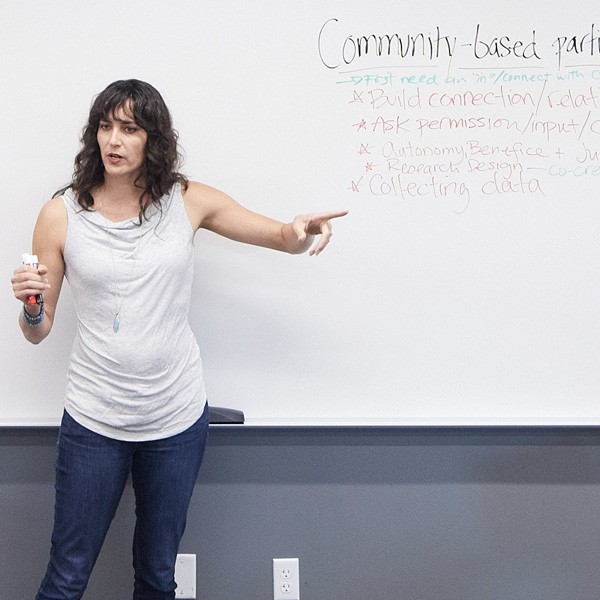 Professor Tessa Hicks-Peterson
Professor Tessa Hicks-Peterson- What does it mean to cultivate wellness for people on the frontlines of injustice? In Tessa Hicks-Peterson’s community-based research class this fall, students will engage in racial justice work and transformative movement organizing alongside local activist organizers in an all-digital format that includes poetry, music, the arts, meditation, circle process and guest speakers.
- In her pre-calculus class, Jemma Lorenat won’t teach common curves the normal way. Instead, her students will learn the subject by looking at Coronavirus—through real and predictive data and simple epidemiological SIR (Susceptible, Infected and Recovered) models. Using online Python labs, students will design models that show the effects of quarantine, herd immunity, vaccines and second waves. Pre-calculus students will walk away equipped to unpack news headlines and to share that knowledge with their families and communities.
- Imagine you have signed up for one of fourteen “Inside Out” classes where half of your fellow students are incarcerated in local institutions. Last spring, we had to finish those collaborations via mail correspondence. This fall, due to the hard work of Pitzer College faculty and staff, we will be able to work with incarcerated students to utilize Zoom for the first time in the history of the California Department of Corrections and Rehabilitation.
- Digital pathways have expanded our already rich language curriculum as we rise to meet the challenges of COVID-19. Pitzer Spanish, Portuguese, and French programs will emphasize our existing virtual connections with communities abroad this semester. Students will engage with virtual communities abroad in Ecuador and Costa Rica, participating in conversations about their everyday lives and current issues affecting their communities and crafting collaborative projects with local students and community organizers in Latin America. Juanita Aristizabal’s Portuguese classes will connect students with grassroots organizers fighting for racial justice in Brazil. And our newest language professor, Fely Catan, has developed a collaboration with a high school in Guadeloupe that will be built into her French 2 class—paving the way for more programming in the French-speaking Caribbean. Another language class, Children of Immigration, will build on Pitzer’s longstanding partnership with a local bilingual public school through virtual engagement with an intercultural Quichua-Spanish elementary school in Quito.
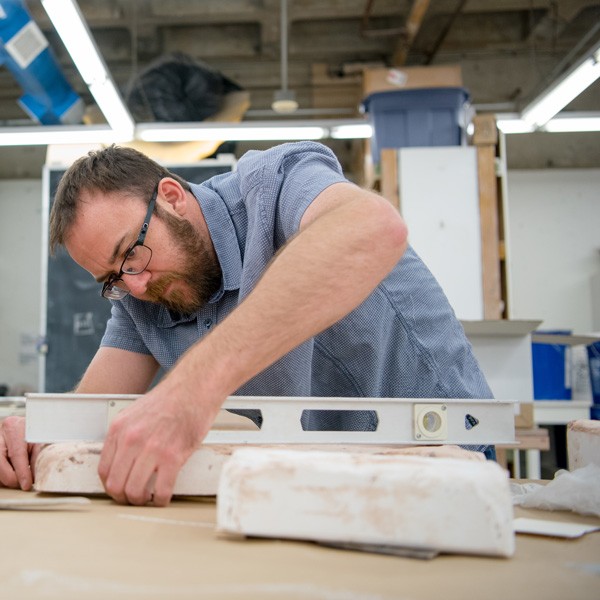 Professor Tim Berg
Professor Tim Berg- Professor of Art Tim Berg is developing an online course with Professor Davis of Scripps called “Inside the Artist’s Studio.” Each week, the class will Zoom to a different artist’s studio somewhere in the world to have them discuss their methodologies and conceptual process. Readings will supplement each visit and students will make projects related to the work of each artist we visit. This course is supported by the Hive, which is helping us to pay each artist for their time and access to their studios.
- This semester’s Intro to Video courses includes a range of hands-on production projects inspired by the earliest video art and by our recent experiences under quarantine: videos shot entirely in one space, using the body, the camera, and the room as the main tools. Other student productions will explore activism; truth, falsehood, and representation on social media; iconoclasm; and virality. Students will think through our present reality and to benefit from the collaborative wisdom of invited speakers.
- The Chemistry Department is excited to present their “at-home” general chemistry lab program. They will be shipping all the supplies you need for your general chemistry experiments right to your door. Students will be testing dyes and determining sugar content in popular beverages, testing their local water supply for hardness, pH and contaminants, using augmented reality to study molecular shapes, and much more.
We can give many other examples about how we are taking advantage of online formats to create unique learning possibilities: studying the use of VR as an immersive tool for police bias training; attending online vigils in relation to COVID 19 and the carceral state; thinking about democracy’s dependence on mathematical literacy, learning a form of mental health praxis that prioritizes well-being through digital connection, creating an economic video scrapbook, staging the world around you for art production; carving out a pathway to cope with the existential crisis of climate change by “visiting” the sites that get it right. For Econ or STEM students, the online lecture format will allow screenshots and instant replays of harder concepts that will benefit students as they master the material.
And, as always, our small classes allow us to prioritize process, individual meetings, careful responses, discussion, and feedback on student work. While our format will be online, grading and assessment in all classes remain analog—the opposite of the automated grading systems found in larger-scale institutions.
This semester, we will tap into multiple student geographies, as well as deepening our relationship to the Inland Empire. Our faculty and staff are working overtime to plan unique opportunities for your involvement in and out of the classroom.
“This fall semester will be fundamentally different than the scramble for online education we experienced in our emergency last spring.”
This fall semester will be fundamentally different than the scramble for online education we experienced in our emergency last Spring. A great deal of resources, labor, and support has gone into making fall teaching mindful, innovative, well crafted, and very Pitzer. The virtual environment has forced us to open our pedagogical frameworks in ways that will likely have a lasting transformation on our curriculum. The range of projected offerings this fall semester will help our students retain information and will help them develop a much-desired skillset in the job market: digital competence.
Part of a Pitzer education is weaving pressing social issues into the fabric of our institution both in and out of the classroom. There is so much at stake in the world around us. We need your investment and your energy to tackle those challenges.
Because of our concern about our students and their educational experiences, Pitzer conducted a student survey about their online experiences in spring 2020. And we heard you: classes need to be accessible and also provide opportunities for developing and maintaining personal connections. They need to combine flexible attendance with opportunities for real-time engagement. Ties between faculty and students matter. We are leveraging the online format for fall classes so that they will be more effective, more connected than they were last spring.
Our Academic Planning Committee has established guiding principles for our institution that prioritize health and safety, provide an enriching, engaging educational experience regardless of format, to continue our personalized approach in teaching and advising, to make ourselves available in students’ journeys toward their degrees. We are working collaboratively to coordinate academic plans, curricular offerings and co-curricular activities for the fall.
Specific initiatives and programs for this fall
Racial Justice Initiative
The promise of transformational change embedded in the Black Lives Matter movement is unprecedented in the history of the United States. In response to calls demanding the structural eradication of ongoing police violence, the recently-announced Presidential Initiative on Racial Justice calls for our community to come together around racial violence and inequality issues on our campus and in the world at large. This coming year, Pitzer will launch this initiative which aims to transform our curriculum around themes of racial justice and inequality, to bring in cutting-edge speakers to work with and educate our community, to rethink residential life and student affairs programming through a racial justice lens and to embark on a top-to-bottom assessment of the campus. Issues of racial violence and inequality remain more pressing than ever. Pitzer has always been a campus dedicated to social justice. We need students, faculty and staff to be vocal in determining the impact our campus can make in the world and the impact the world can make in transforming our campus. As we look at our own institution, we need to hear your voices.
Community Engagement
We cannot stress enough how important it is to stay engaged with our community partners during this time. A hallmark of Pitzer’s commitment to social justice is its commitment to long-term collaborations with organizations. Some of these organizations have been partners of our college for over twenty years. Our partners are on the front lines of action and impact with regard to health and justice issues. Pitzer faculty, students, and staff have collaborated with organizations doing work around criminal justice reform, immigrant justice, labor organizing, food justice, health, education, and more. We work with populations that include or are led by Black, Indigenous, and People of Color (BIPOC) as well as queer-led and queer-serving organizations. Our partners serve families and children of essential workers—grocery store employees, warehouse workers, and healthcare workers. Existing health and safety disparities in these communities have been exacerbated by COVID 19 and make current social movements for justice and accountable policing particularly salient. This fall, we will engage with our partners in a variety of innovative, online formats that allow us to continue to support their work as well as providing unique educational opportunities for our students. They are working overtime and they need our help. Our partners are swamped. They need help grant writing, utilizing social media to tell the stories they don’t have time to tell, their kids need tutoring and mentoring. There are so many deeply meaningful ways for us to be involved. Our Community Engagement Center is retooling its website to create greater online connectivity between partners, faculty, students, and projects. Let us teach you the skills to be of service, to be an ally, to be a collaborator in this time of great need. Community engagement is one of the things we do best at Pitzer. Now is the time to head deeper into this work, to pick it up if you haven’t done so before, to make it part of your portfolio. You can fight for justice in the trenches with our partners even if—and especially because—it is all online. You are savvy in technology and media; many of our partners are struggling in this area. In making a commitment to Pitzer, you are making a commitment to movements for justice.
First-Year Seminar Courses, Fall 2020
First-year seminars (FYS) are writing-intensive courses of 14-15 students each, as well as forums to introduce students to the academic life of Pitzer College. Students will discuss and write about engaging topics that the faculty have selected. The courses are not part of any major and are not necessarily “introductions” to any given field or major. They are designed to be accessible to all students, regardless of background. Incoming students will be asked to indicate their preferences for their first-year seminar. The professor teaching a given first-year seminar will also serve as their students’ faculty adviser for the first three or four semesters, until a student declares a major. Students develop strong mentoring relationships with faculty and gain a broad understanding of how the curriculum intersects with their individual educational goals. https://www.pitzer.edu/academics/first-year-seminar/seminars/
Pitzer People and Voices
Below, Pitzer academic administrators and faculty write from personal perspectives. Associate Deans support teaching, learning, equity, advising and engagement—and are here to aid you as you navigate the changes this fall. The first, Adrian Pantoja, lands on what is possibly the most important reason for being at Pitzer this coming semester.
This is a critical election year
We are in the midst of the most important presidential election in US history. None of us has the luxury of sitting this one out. Now is the time to be engaged with peers, faculty and the wider community. Years from now, generations will want to know how each of us responded to meet the pressing issues of 2020. I, for one, will say that I gladly postponed my sabbatical to be with my students and lead them through some of the most vigorous and difficult discussions I’ve ever had as a professor. I’ve spent my career studying US elections and racial politics. All of my training and knowledge will be put to the test this semester. Opportunities for elections-based engagement will saturate our campus this fall. For students enrolled in my US Politics class, rest assured, I will not hold back.
— Adrian Pantoja, Professor of Political Studies and Associate Dean. Professor Pantoja has a focus on diversity and inclusion and on equitable accommodations and academic support services. He is also the co-chair of the Racial Justice Initiative.
The world is in the throes of dramatic changes
Black Lives Matter. Transgender Rights. MeToo. Climate crises. White Nationalism. A global pandemic. A Theo-Fascist in the White House. Bolsonaro. Modi. Putin. Biya. Palestine. Tibet. Hong Kong. And so much more. In my nearly 25 years at Pitzer, there has never been a time when critical thinking, social responsibility, community engagement, and a commitment to seeking truth amidst a tornado of misinformation are more needed. There is truly so much for us to sink our minds into—as teachers and learners—now more than ever. For me personally, I find the insights of sociology and social theory particularly relevant. And my academic interests—in secularism, religion, feminist freethought, and African American Humanism—also help me make sense of much of the drama of our struggling world. I look forward to this coming semester, given all that there is to discuss, analyze, explain, confront, repair and change.
— Phil Zuckerman, Professor of Sociology and Associate Dean. Professor Zuckerman works on curricular planning, student advising and support, and troubleshooting academic pathways. He also runs Pitzer’s Summer Session.
Now, more than ever, the world needs a Pitzer College firing on all cylinders
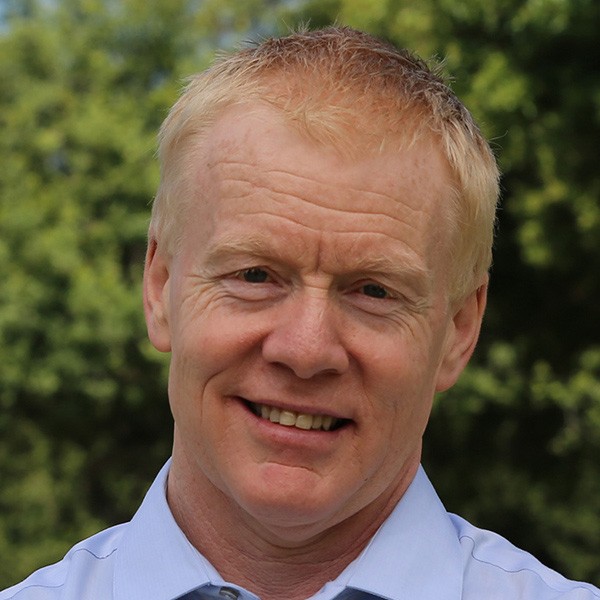
I was fortunate to be mentored by the man I had replaced, a German-Jewish refugee educated at Black Mountain College. Lucian Marquis converted me into a Deweyian. In that tradition, the best liberal arts colleges remain focused on how pedagogical innovation and social engagement serve the common good in a democratic society. Solving our own problems is important: dysfunctional liberal arts colleges are no use to anyone. But solving the problems besetting our society and our world is what liberal arts colleges like Pitzer exist for. And it is the forward-looking engagement with these challenges that galvanizes faculty, staff and students in the thrill of research, discovery, creative thinking and problem solving. In the midst of this pandemic crisis, liberal arts education is our best hope for addressing the most hellish social problems and the most daunting future challenges: racial injustice, mass incarceration, health inequality, environmental degradation. And a Pitzer education is much more than 32 courses of 45 contact hours. It’s a community, nested in a consortium of such communities, in which students have the space and support to figure out what social problems they want to address, what tools they need to address them, and how to convert passion and skills into action.
— Nigel Boyle, Professor of Political Studies and Associate Dean of Global Studies. Professor Boyle is in charge of the FirstGen program and works with students on opportunities to connect their education to post-graduate opportunities. He is the founding director of the Institute for Global Local Action and Study and a founder of our Justice Education Initiative.
Embrace a Pitzer education in this challenging time
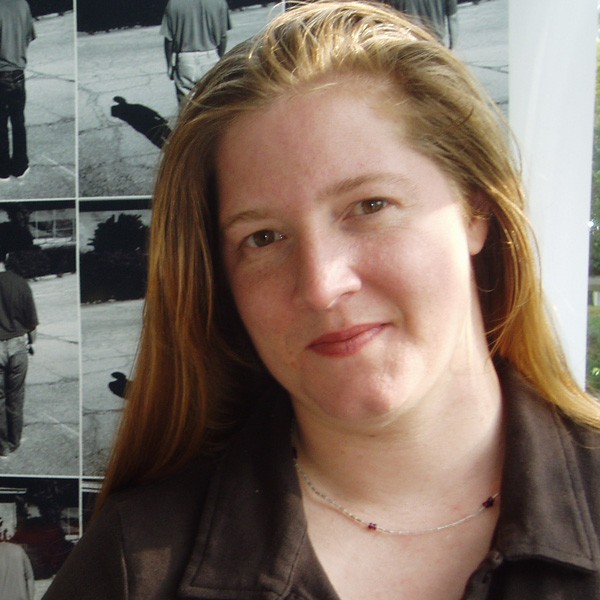
I am committed to encouraging students to embrace a Pitzer education during this challenging time. I think of my own father, whose education was disrupted by World War II. He could not go to school for a number of years at a critical time in his life, and it had a profound impact on him. I’m continually thinking of how lucky we are to be able to have the choice, to have technology that enables us to stay connected, to enable us to teach and learn. My dad and countless others of his generation did not have that chance. We and you, our students, do. So I’m thinking of him as I am writing this, and I wanted to share his story because it helps me to understand why we need to fight for our ability to educate one another. All of us together have an important role to play in this process. We will not allow mentorship and teaching to stop. We want to struggle through this time with you. Just as we are dedicated to you, our students, we hope we have clearly articulated the reasons why you should be dedicated to us. It’s more than just a question of credits. It’s a question of the fundamental principles that Pitzer College stands for: justice, struggle, compassion, inquiry. And community. Community is one of the most valuable things we can nurture. I, for one, value ours. In prison organizing, we say ALL OF US OR NONE. Somehow, I would like to enact that principle on our campus this coming fall semester. Please join us.
— Susan A. Phillips, Professor of Environmental Analysis and Associate Dean. Professor Phillips is faculty director of the Community Engagement Center focusing on community-based learning across the curriculum. She is also the co-chair of the Racial Justice Initiative.
Feel free to contact us at [email protected] for more information.
#PitzerNow
Be active participants in this time of waiting and seize every moment!
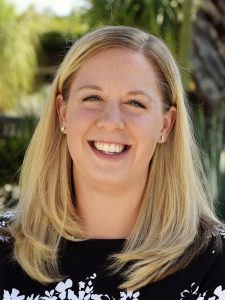
My research interests in literature and temporalities of waiting seem like a cruel irony these days, as I find myself waiting—for vaccine breakthroughs, for news, for the next federal election, for certainty, or for some semblance of life as we knew it. One of things I’ve learned through my research is that waiting is never empty time, nor passively endured, but rather full of active negotiation. For example, in The Future as Cultural Fact, Arjun Appadurai remarks that one strategy communities employ to “oppose the politics of catastrophe, exception, and emergency” is “the politics of waiting.” He observes that waiting can be agentive; he finds that “organized hope mediates between emergency and patience and produces in bare citizens the internal resources to see themselves as active participants in the very process of waiting.” As a result, “waiting for” transforms into “waiting with,” creating bonds through a shared temporality of waiting that shifts from a focus on vertical lines of subordination to horizontal lines of comradeship.
What does this mean for us? For one, we can directly confront the question of how we choose to manage or use this time. I’ve been reworking my fall courses to engage the new opportunities for learning and engagement, and I’m looking forward to being back in the classroom with Pitzer’s sharp, intellectually curious, and diverse student body. I challenge you to use this time to delve deeply into the fields of study that deeply interest you, or use this time to fulfill the educational objectives that reflect our core values—to make the most of this upcoming semester. But also, I challenge us to see ourselves as active participants in the very process of waiting, seizing the moment and our times and making progress—toward a more just future, not only progress toward a degree.
Speaking for myself? I can’t wait.
—Amanda Lagji, Assistant Professor of English and World Literature.
Pitzer is a Community
Pitzer is not just like a grocery store or something where you go get the thing you need (education?). It really is, in many senses, a community. And the proof of that is that when they attacked a segment of our community, the international students, we all pulled together to defend them. People in office of study abroad brought their concerns to the task force and reached out individually to international students to reassure them that we were taking this seriously and trying to help. Individual faculty volunteered to teach in person courses even if the whole college was online so that international students wouldn’t get sent home by this horrible policy. Administrators and senior officials banded together across the colleges to get legal counsel and file a lawsuit. You can barely even get us to fucking agree whether we should offer decaf coffee at the Pit Stop! But when the chips were down and part of our group was threatened, we stuck together and defended them.
You’re not going to get that at an online community college probably, just saying.
When we began talking about whether or not we would be teaching classes online in the fall, I admit that my first reaction was that it just wouldn’t be the same. Maybe for a huge lecture class it doesn’t matter, I thought, but *my* classes rely on discussion and interaction among the students. How is that going to work online?
What changed my mind about this wasn’t teaching online (I was actually on leave in the spring) but rather becoming a student myself. This summer I took two different creative writing classes, both of which were supposed to be in person workshops but were converted to an online format at the last minute.
In the second class in particular, the other writers and I ended up developing a real sense of community even just within a week. We got to know each other and like each other. On the last day of class, everybody was tearing up and we did not want the workshop to end. We agreed to continue meeting informally at least once a month.
I’m sure some of this heightened emotion was due to the pandemic. And also I was lucky to be with such a diverse group of writers, from different countries, different age groups, different ethnic backgrounds, who brought so much enthusiasm and openness to our class.
But it underscored for me something but I should have remembered from the beginning: It’s not about the classroom. It’s about the creativity, willingness to take risks, deep thinking, and joy in collaboration that my Pitzer students bring to class. It’s about their life histories, and their willingness to share them with me and with their peers. It’s about drawing a picture of something you can’t express with words, or hearing a story from someone else in the class that suddenly helps a whole part of your life make sense.
Sure, we will have to adapt. Some things we normally do might be a challenge. Other things might be easier. There was something kind of cool about seeing all the faces of my classmates at once. And I expect that the emotional complexity of this time we are in is going to add an interesting dimension to our classes, whether in person or online.So don’t be misled. You can most certainly take classes online somewhere else and save money, and if you want or need to do that I completely support you. But they won’t be the same as the *Pitzer* classes. Because it’s not about the content and it’s not about the location. It’s about the crazy, creative, out-of-the-box, into the fire spirit that makes an education at Pitzer special. There’s the teacher, there are the students, and then there’s that mysterious third thing: that indescribable thing that happens when a class becomes a community. After my experience this summer, I know I can bring an online class to life in that way. Join me, if you can? I would love to see you there.
—Carmen Fought, Professor of Linguistics
The Most Important Thing in Life is Relationships
If I was asked about why students might want to stay enrolled at Pitzer through the pandemic, it would be because the most important thing in life is relationships. I think it was Steve Glass who used to say, “Students only pay four years of tuition at Pitzer, but they get a lifetime of advising.” Students come to Pitzer to build lifelong relationships with their professors (and others).
In the near future, students will rely on Pitzer professors to write numerous letters of recommendations for them. So students should be taking classes with these professors now. Pitzer professors will continue serve as mentors and advisors for their students years after graduation. I have had students call me up a decade after graduation to ask me some econometrics questions.
The relationship between the student and professor at Pitzer never ends. So you want to be at Pitzer in order to nourish these relationships.
—Linus Yamane, Professor of Economics